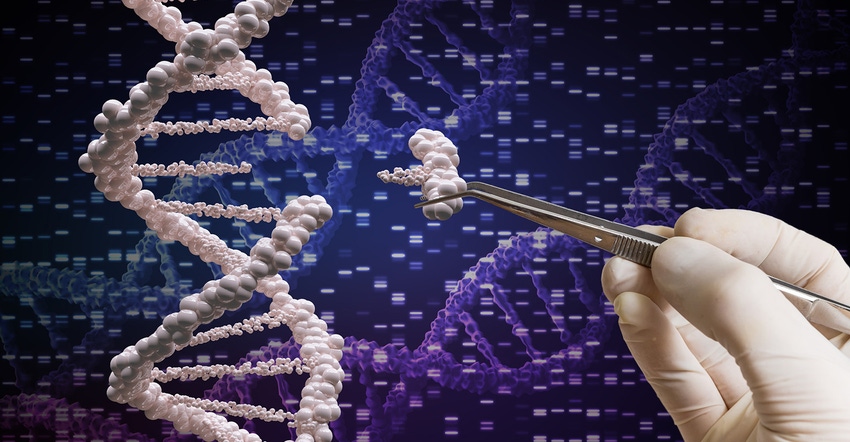FDA stall tactics hurting U.S. agriculture
Regulatory roadblocks prevent livestock gene editing from moving forward.
February 11, 2020

The U.S. Food and Drug Administration's misrepresentation of a gene edited livestock research project is its latest stall tactic designed to rationalize a regulatory grasp on an emerging technology that the National Pork Producers Council feels must be regulated by the USDA if the United States is to maintain its global leadership position in agriculture.
"While countries like China, Canada, Brazil and Argentina are moving quickly on this advancement to gain competitive advantage, the United States is falling far behind because of the FDA's precautionary regulatory approach," says NPPC President David Herring, a hog farmer from Lillington, N.C. "Under FDA regulation, gene editing faces an impractical, lengthy and expensive approval process. Unless we move oversight to the USDA, we are ceding a technology that promises significant animal health benefits, including immunity to disease and reduction in the need for antibiotic use, to other countries and jeopardizing hundreds of thousands of American jobs."
A published FDA analysis of the research project involving two gene edited calves omitted important information, including the following.
As noted in the FDA analysis, unintended alterations materialized in the gene edited calves. However, the FDA failed to recognize that the animals in question were never intended for the food supply or to be presented for regulatory approval. They were part of a carefully controlled research program at a major university, and their genomes were made freely available to the scientific community in order to advance the study of gene editing in agricultural animals. The scientists involved fully intended scrutiny and will publish their own detailed analysis of their program — including the insertion of this foreign genetic material — in order be transparent and to foster scientific dialogue about this promising new technology.
The technique used to edit these animals continues to be refined and is not used for all applications of gene editing in animals. Edits that seek to "knock-out" a gene (in order, for example, to eliminate vulnerability to disease) do not utilize foreign DNA as was the case in the research project analyzed. Regardless, these are findings that would come to light under any reasonable regulatory review process and are in no way unique to the FDA's approach of regulating gene edited animals. Presenting these findings as a major roadblock to adoption of this technology is a gross mischaracterization.
The FDA's misleading claims are only adding to the chilling effect their regulatory framework is having on this technology. Their "gotcha" approach inhibits much-needed investment and completely misrepresents the scientific community's intent to be transparent about the development of potential gene edits and how they may someday be deployed.
To date, the FDA has not responded in a meaningful way to the comments they received concerning the ramifications of their proposed regulatory process. Meanwhile, other countries are moving forward with appropriate, risk-based pathways for approval of a technology that will give them an edge over American agriculture.
Source: National Pork Producers Council, which is solely responsible for the information provided, and wholly owns the information. Informa Business Media and all its subsidiaries are not responsible for any of the content contained in this information asset.
About the Author(s)
You May Also Like



